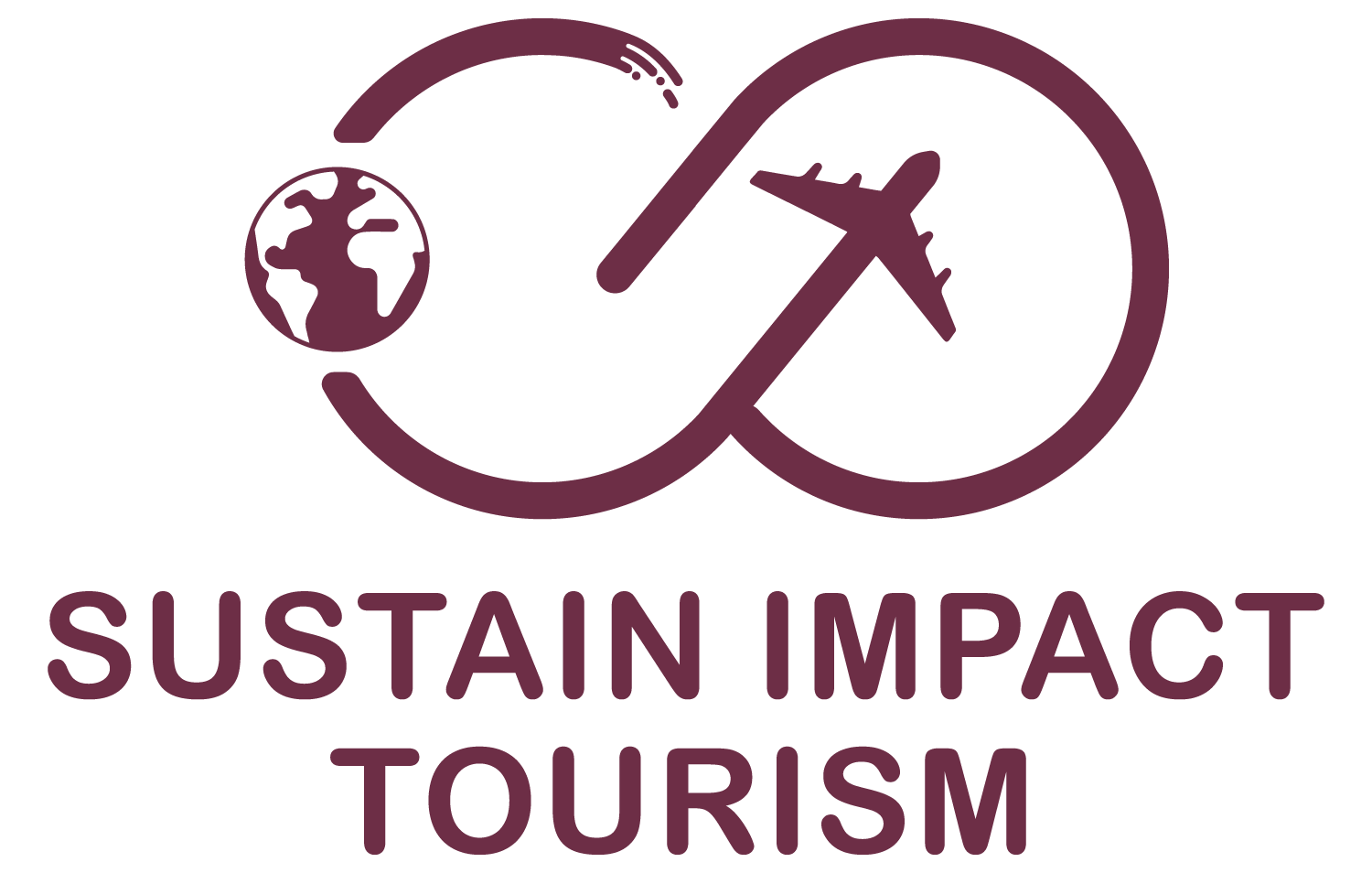Navigating Sustainable Tourism Certifications
Sustainable travel is all the buzz lately, with more of us waking up to the need for environmental care, respect for local communities, and pushing towards a better tomorrow for everybody. But let's get real—what does it actually look like for a tourism business to become sustainable? It can get overwhelming and confusing to know where to get started and how to communicate our efforts without getting pulled into greenwashing.
Many tourism businesses pursue certification for two main reasons: they are a wonderful starting point that help businesses get sustainable in a structured way (certifications essentially provide you with a list of expectations and give you guidance at how to achieve them) and they are a proof of your achievements (they are internationally recognised mechanisms that check whether you stick to the standards on a regular, usually yearly, basis). So, how do you get started?
Overview of Sustainable Tourism Certifications and Industry Impact
Certifications lay out strict guidelines that make sure travel professionals are doing right by mother nature, keeping cultural landmarks intact, and giving back to hometown economies. They are seals of approval do double duty: they’re not just shiny tools for advertisers but blueprints for genuine progress too. Think about them as your compass guiding you toward eco-friendly choices that lessen our footprint while boosting local well-being. From cutting down on trash heaps to cheering on conservation projects, these endorsement programs are really flipping the script on how we explore this beautiful globe and treat its amazing inhabitants.
UNWTO (United Nations World Tourism Organization) is an international organisation responsible for working with member states and establishing guidelines and laws around the tourism industry. They are heavily involved in gathering statistics, education, and making sure that tourism contributes to SDGs (Sustainable Development Goals). Many certification agencies use their research and knowledge to create scientifically-supported objectives.
GSTC (Global Sustainable Tourism Council) is a wheel of sustainable travel and tourism standards. Together with UNWTO by its side, GSTC steps up as one half of a powerhouse duo guiding us towards brighter horizons in sustainability education and action within travel circles. Think of them less as distant regulators and more like trailblazers shaping our globe-trotting experiences—one responsible policy after another! They work with all: certification bodies, destinations, hotels, and tour operators.
Sustainable Destinations Certification
Each destination is unique and different. Measuring their sustainability can be challenging as they simply cannot be compared: a natural park needs different criteria than a big city. What is more, there is a very limited sphere of control that those in charge of a destination (usually a public-private DMO, a Destination Tourism Organisation) have. They cannot establish laws, they cannot force businesses to behave a certain way, they cannot open or close restaurants… Therefore the kinds of requirements often need to be general enough to be applicable and specific enough to make a real impact.
Some of the most recognised certifications include:
Green Destinations is an accredited certification program guided by the GSTC that assesses the sustainability of the destination and establishes a pathway to continuous improvement.
Global Destination Sustainability Movement works with destinations to not only certify their sustainability, but also to educate all the relevant stakeholders. Furthermore, they publish success stories of destinations to inspire places around the world.
Sustainable Hotel Certification
Sustainable hotel certifications are shaking up the world of holiday lodging, revamping how hotels do business. To snag one of these green badges, places to stay have to go sustainably in all they do. It’s like a chain reaction—once a spot spruces things up for that seal of approval, it's setting the bar high for everyone else.
Take energy use: with these programs egging them on, there are hotels dialing down their power bills by upgrading to smarter lights and heating setups. And water? Hotels hop on board with gadgets that cut back flow without anybody missing out on pressure during their shower jam session or teeth-brushing routine. Then there's cutting clutter—the war against waste! With solid recycling plans and kicking single-use plastics curbside, it makes taking care of our planet easier.
Let's dig a little deeper into what goes on behind closed doors. These fancy stamps of approval don't just look good in the lobby—they mean we're having real talks with you about going sustainable. Imagine waking up in a place where sustainability isn’t tucked away but is part and parcel of your whole experience. You'll get cozy among thriving nature spots full of local wildlife, or maybe even dive into cultural treasures nurtured by communities who care deeply for their home turf.
Some of the most recognised certifications include:
Earth Check’s motto is “Good for Business, Good for the Planet”. It is a certification, consultation, and training company that supports hotels in their transition towards sustainability with a science-based methodology.
Green Globe certifies hotels and offers them continuous training on sustainability in order to assure the highest standards.
Green Key is a certification that adheres to strict guidelines of the Foundation for Environmental Education. They help hotels reduce their environmental footprint through inserting sustainability into their operations.
Sustainable Tour Operator Certification
Tour operators must approach sustainability very differently from hotels. They are not tangible physical buildings where water usage, waste, energy, and others can be measured and goals can be set. They are more complicated than that. They have many service-based offers and while you can measure how many plastic bottles have been used in one week, you cannot measure the transformation that took place during the tour of the Old Town of Bucharest. Therefore the certifications that might work for hotels, do not necessarily work for travel agencies.
Some of the most recognised certifications include:
Travelife is a certification system that focuses on tourism operators that assesses the status quo in the company, creates an action plan for the tourism companies, and helps to communicate the results.
Biosphere certification works with both tour operators and destinations guided by the principles set by the Responsible Tourism Institute and the SDGs.
Preferred by Nature certification programme that supports “sustainable management system”. They create standards and communicate the efforts done by individual companies.
Interested in learning how to use storytelling to communicate your sustainability efforts in your annual sustainability report? Don’t wait more! Sign up for our sustainable storytelling course starting soon!
Storytelling plays a vital role in promoting sustainable tourism by connecting visitors to the destination, educating them, and encouraging responsible and ethical travel practices. It helps preserve cultural heritage, empower local communities, and create engaging and memorable experiences that benefit both tourists and the places they visit.
The Importance of ISO Standards in Sustainable Tourism
ISO standards act as the globe's quality assurance gurus. These key figures spearhead sustainable travel by crafting guidelines that outstretch neighborhood and state lines. They supply businesses with instruments to gauge and enhance their eco-footprint, all while maintaining stellar service quality.
Take ISO 14001 for instance—it zeroes in on environmental management systems. This isn't merely about sporting an eco-friendly image, it genuinely embodies sustainability. It equips companies with a methodical strategy for assessing and slashing their ecological footprint—think of it as evolving non-stop, making sure tourism expands alongside our planet’s caretaking responsibilities.
ISO 21401, for instance, is all about sustainability management for places like hotels and resorts, showing us that the travel world is seriously stepping up its game to care for our Earth. It’s tough to hit these high marks; that’s what makes them so darn important! They sort out who’s really in it to make a difference from those just going through the motions.
Benefits and Disadvantages of Sustainable Tourism Certification
Sustainable certifications are a wonderful starting point. They provide a structured way of working towards sustainable tourism and create early “wins” (being able to tick off the first tasks completed and seeing some results) and thus they are a wonderful starting point. Furthermore, bodies responsible for sustainable certification are required to check whether the work reported is really being done and therefore they are a preventative measure against greenwashing. They assure customers that the organisation has at least some interest and action when it comes to working towards sustainability.
On the other hand, just like anything invented by the humankind, certifications are imperfect. They do not take into account individual circumstances for each company and thus we find ourselves in a situation where we compare the South of Spain and Finland (one lacking drinking water and suffering the negative consequences and another having more than needed for both nature and humans) with the same criteria. What is more, they can sometimes discourage looking for creative ideas at how to tackle sustainability since it just becomes a list of tasks to complete. Not even mentioning that a certification process can get very costly and requires a lot of time dedicated to it which is something SMEs, particularly, might struggle with.
All in all, sustainable tourism certifications are a good mechanism to get us started at sustainability, standardise approach required, provide early wins and thus psychological motivation, and prevent greenwashing. However, it is not the only solution to tackle sustainability and the fact that it is not the right fit for your organisation, does not mean that sustainability is not the right fit.
Are you interested in understanding whether a certification is the right path for you and which one to pursue? Book your free 30-min discovery call with Sustain & Impact Tourism to get started.

